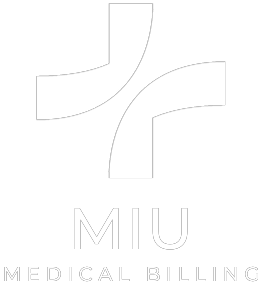Introduction
Compliance with regulatory standards is paramount for ensuring patient safety and delivering high-quality care in the ever-evolving healthcare landscape. Best Physician credentialing services in Texas are essential in verifying healthcare providers’ qualifications, credentials, and professional standing. This comprehensive audit guide aims to assist organizations offering physician credentialing services in Texas in upholding the highest levels of compliance and mitigating potential risks.
Understanding Regulatory Requirements
Adhering to regulatory requirements is the foundation of a robust compliance program for physician credentialing services in Texas. Organizations must familiarize themselves with the guidelines set forth by relevant state and federal agencies, such as the Texas Medical Board, the Centers for Medicare and Medicaid Services (CMS), and the National Committee for Quality Assurance (NCQA). These regulatory bodies establish standards for credentialing processes, documentation requirements, and ongoing monitoring of healthcare providers.
Developing a Comprehensive Credentialing Policy
A well-defined credentialing policy is the backbone of Texas physician credentialing services. This policy should outline the specific criteria and procedures for verifying a provider’s education, training, licensure, certifications, work history, and professional standing. It should also address the frequency of re-credentialing, which typically occurs every two to three years, ensuring that providers maintain their qualifications and adhere to ongoing compliance requirements.
Conducting Thorough Primary Source Verification
Primary source verification is a critical component of physician credentialing services in Texas. This process involves directly obtaining and verifying information from the issuing sources, such as medical schools, residency programs, licensing boards, and professional associations. Organizations should establish robust protocols for primary source verification, including maintaining detailed documentation and employing secure methods for requesting and receiving sensitive information.
Monitoring Ongoing Compliance
Compliance is an ongoing process that extends beyond initial credentialing. Physician credentialing services in Texas must implement measures to monitor providers’ ongoing compliance with regulatory requirements. This includes reviewing provider disciplinary actions, sanctions, malpractice claims, and licensure or board certification status changes regularly. Established protocols should outline the appropriate actions to be taken in case of non-compliance, such as suspending or terminating a provider’s credentials.
Ensuring Data Integrity and Security
Maintaining the integrity and security of sensitive provider data is critical to physician credentialing services in Texas. Organizations should implement robust data management systems and adhere to strict data storage, access, and transmission protocols. Regular audits should be conducted to ensure the accuracy and completeness of provider information, and appropriate measures should be taken to protect against data breaches or unauthorized access.
Developing a Robust Audit Program
Regular audits are essential for identifying and addressing potential gaps or weaknesses in physician credentialing services in Texas. An effective audit program should encompass a comprehensive review of credentialing processes, documentation, and adherence to regulatory requirements. Audits should be conducted by qualified personnel, and findings should be documented and addressed promptly through corrective action plans.
Training and Education
Providing ongoing training and education to staff involved in physician credentialing services in Texas is crucial for maintaining compliance and ensuring consistent application of policies and procedures. Organizations should develop comprehensive training programs covering regulatory requirements, credentialing processes, documentation standards, and best data management and security practices.
Collaborating with Third-Party Entities
In some cases, physician credentialing services in Texas may involve collaboration with third-party entities, such as credentialing verification organizations (CVOs) or delegated credentialing entities. Establishing clear agreements and protocols for data sharing, communication, and oversight is essential to ensure compliance across all parties involved in the credentialing process.
Continuous Improvement and Adaptation
Regulatory requirements and industry best practices are continually evolving. Physician credentialing services in Texas must remain vigilant and adapt to changes in the healthcare landscape. Organizations should regularly review and update their policies, procedures, and audit programs to align with emerging regulatory developments and industry standards, ensuring ongoing compliance and continuous improvement.
Conclusion
Maintaining compliance within physician credentialing services in Texas is a multifaceted endeavor that requires a comprehensive and proactive approach. By following the guidelines outlined in this audit guide, organizations can establish robust processes, ensure data integrity, and foster a culture of continuous improvement. By prioritizing compliance, provider credentialing services in Texas can uphold the highest patient safety standards, provider qualifications, and overall healthcare quality.




